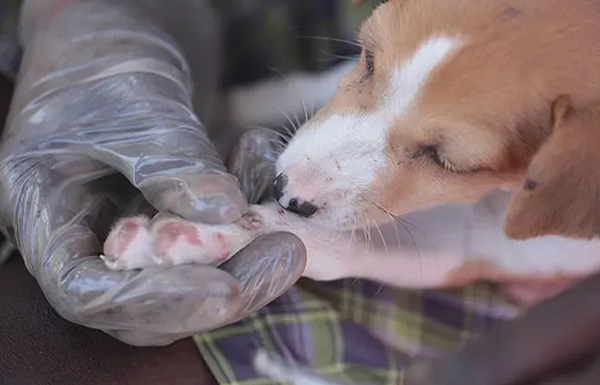Mango worms in dogs are a sign of concern for owners, leaving owners distressed. Generally, these worms are known as larval or, more commonly, the mango fly. It is a type of blowfly that lives in warmer regions, mainly in Africa. These tiny parasites start their life cycle in the ground, waiting for the right host to dig into. When your furry friend comes in contact with the ground, these worms burrow in and start growing, which can cause painful, itchy bumps that are very uncomfortable for your pet.
How do Dogs Get Mango Worms
Canine become infected with tumbu flies in places where contamination of the soil with eggs has taken place. It can happen when canines dig, roll over, or lie on the ground. The eggs hatch, and larvae, born out of them, start to burrow into the dog’s skin. Noteworthy is the fact these worms cannot be spread directly from one canine to another or from canines to humans.
Symptoms of Mango Worms in Dogs
Timbu flies usually leave noticeable signs when infested in dogs. Watch for:
- Itchy red bumps
- Pus-filled bumps
- Blister-like lesions
- Very intense itching and discomfort
- Restlessness and inability to sleep
- Loss of appetite
- Fever in the event of wound infection
Managing Mango Worms in Dogs
The treatment of mango worms in dogs is performed by extracting the larvae from under the skin. Here’s what your vet may do:
Physical Excision: In plain language, the veterinarian enlarges the worm’s breathing hole and physically extracts it using specially made forceps. This process has to be conducted very carefully so as not to leave particles of worms in the body that cause infections.
Antibiotics: The vet may describe antibiotics to treat any secondary infections.
Injection: The vet will sometimes inject such things as lidocaine to help the removal process.
Preventing Mango Worms in Dogs
Like any sore, it’s prevention rather than cure. These are ways you can protect your dog from tumbu flies:
Avoid Contaminated Areas: Do not let your dog lay on soil or sand that might be contaminated with mango worm eggs, especially in mango worm endemic areas, when you are traveling to one such area.
Clean Bedding: Always wash your dog’s bedding and any other piece of fabric that the animal might be in contact with to make sure they are free from mango fly eggs.
Oral Preventatives: See your veterinarian about oral parasite preventatives that are active against tumbu flies before they become an issue.
More Tips For Dog Lovers
Of course, handling tumbu flies is only a part of the deal of keeping a dog healthy. So here are a few more tips:
Vitamin Water for Dogs: Ensure your dog gets enough vitamins by providing vitamin water for dogs. It can boost their immune system and overall health.
How to Stop a Dog from Eating Much: Frequently, canines have the habit of chewing, but consuming this mulch is bad for the health of the dog. Observe your dog during this week and ensure that it has adequate toys to bite on.
Are Dogs’ Mouths Clean: The teeth and mouths of dogs are dirty, contrary to some of the concepts developed in some people’s minds. Nevertheless, it has been found that if there is constant dental care their mouth is much cleaner and healthy hence; they do not contract so many infections.
Parasites in Dogs: Other parasites can be harmful to your dog. So that proper checkups and treatments are never delayed at regular intervals.
Conclusion
An infection with mango worms is distressing for canines, but knowledge and care can keep your furry friends safe and sound. Be proactive through regular trips to the vet, keep living conditions clean, and stay away from known contaminated areas.

https://shorturl.fm/wMYIU
https://shorturl.fm/Efb5V
https://shorturl.fm/JmjLU
Lebih baik lakukan pengecekan promo terlebih dahulu di situs IDRHOKI | LOGIN sebelum bermain, sehingga anda bisa mendapatkan keuntungan dari promo atau bonus yang sudah disediakan untuk para pecinta slot yang ada di Indonesia.